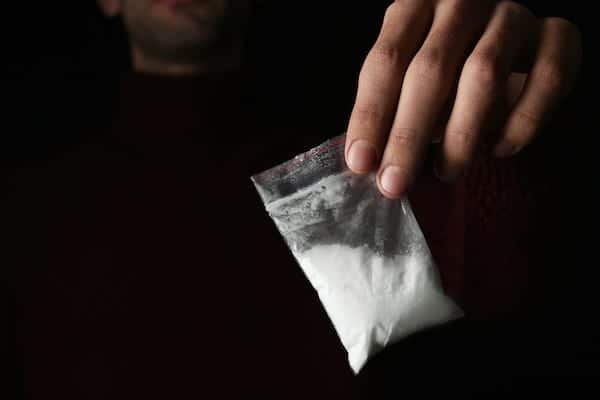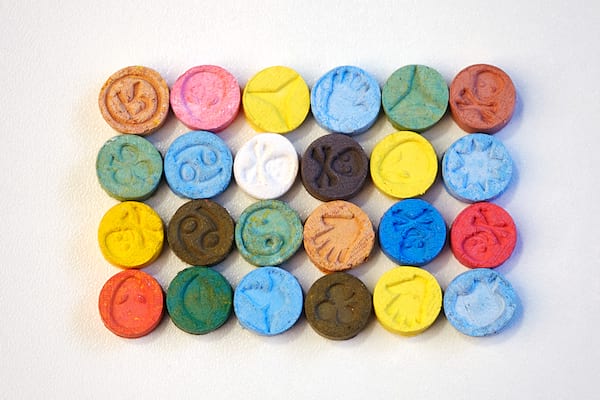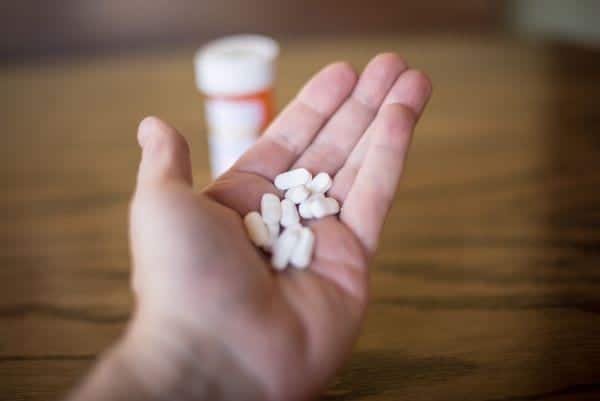Throw in the murky, sometimes unknown, origins of these buzzwords, and it is not surprising that one might need a compiled list explaining some of the terminology related to drugs.
Marijuana
As the most widely used illicit drug in the United States, continually in the public debate regarding whether or not it should even be illegal, it is no wonder that people have come up with a variety of slang and street terms to refer to marijuana.
The drug is so old and widely used, in fact, that there is a plethora of terms for pot. At the same time, there is a much smaller list that makes up the terms most people end up regularly using when referring to marijuana.
Some people go so far as to claim marijuana has become a negative buzzword of sorts, used to give people an incorrect and unfair impression of the drug. They prefer the term cannabis, particularly those who are focused on the medicinal effects of the drug. Most people, however, don’t go quite that far (although the term is still often avoided simply because it is rather lengthy to say).
The following are slang terms often used to refer to marijuana:
- Pot: This is by far the most commonly used term to refer to marijuana, although its origins are not entirely certain. Some sources claim it refers to potiguaya, a Spanish word for marijuana, but there is little evidence for this ( including the fact this does not seem to be a Spanish term).
- Hashish or hash: This term comes from a particular type of Indian hemp, although is now more widely used as a slang term for marijuana.
- Grass, green, herb, bud, alfalfa, Christmas tree, or asparagus: Some terms for the drug mostly are just riffing off of the fact it is a plant and/or the appearance of the plant. It is perhaps worth noting that marijuana is an herb, by at least some definitions.
- Mary Jane, Doña Juanita, Mary, and Johnny: These terms play off the word marijuana. Mari becomes Mary, and juana becomes Jane, for example.
- Cannabis: Not exactly slang, cannabis is more or less synonymous with marijuana and an official dictionary term. There is nuance to the terminology when used in some capacities, but cannabis and marijuana are often used interchangeably.
- Hemp: This can refer to either a cannabis plant or certain products derived from those plants. Some hemp plants are bred specifically for a particular plant fiber, not to get people high, but the term is often used to refer to the strains of plant that can get one high.
Additional slang terminology is used when talking about marijuana:
- 420: April 20 th (4/20) and to a lesser degree 4:20 p.m. have become pretty widely recognized by people who smoke marijuana as a day or time to engage in excess with the drug. The origins of the term are slightly murky, but it does not actually refer to any police code or similarly strange origin.
- Bong: This is a glass or water pipe used to inhale marijuana smoke.
- Blunt, cigar, doobie, doob, and joint: These terms refer to what are essentially cigarettes or cigars of rolled-up marijuana and paper (sometimes mixed with other drugs, including tobacco).
- THC: This term refers to tetrahydrocannabinol, the chemical primarily responsible for making a user of marijuana high. It is notably possible to breed cannabis to have minimal levels of THC, as is generally done with hemp.
Cocaine

Cocaine is a powerful stimulant derived from the coca plant, which is native to South America. It generally comes in one of two forms: white powder (powder cocaine) or a hard white/yellowish-white rock (crack cocaine).
Unlike marijuana, most of the common slang terms referring to cocaine tend to be fairly self-explanatory.
- Crack: This refers to crack cocaine.
- Rock: This refers to crack cocaine due to its similar appearance to a rock.
- Blow: This refers to powder cocaine, which is usually snorted up the nose.
- Snow: This refers to powder cocaine due to its similar appearance to snow.
- Coke or coca: This is a playoff of the coca plant, or it comes from the word cocaine
- Yayo: The origins of this term are not entirely clear, although most theories point to it having origins in a foreign language.
While there are not many cocaine-specific terms, people often refer to a line in relation to the drug.
People make a small line of a powdered drug, so they can snort it more efficiently. They sweep over the line with a rolled-up dollar, snorting device, or simply their nose to suck up the line of drugs.
In addition to cocaine, people might also do a line of meth or heroin. Some polydrug abusers alternate between lines of various types of drugs.
Meth
This drug is undeniably a dangerous, destructive stimulant that affects the central nervous system. Meth is itself an abbreviation of methamphetamine, although the term meth is used much more often. The drug usually looks like fragments of glass or bluish-white rocks.
Meth can be taken in a number of ways, including by injecting, smoking, swallowing, or snorting the drug. If the intention is to swallow it, it sometimes comes in the form of a pill. When injected, it will be in the form of a powder that is then dissolved in water or alcohol.
These are common terms to refer to meth:
- Blue: This term comes from its characteristic color.
- Crystal: This refers to crystal methamphetamine.
- Ice: This is a play on the appearance of the drug.
- Speed: This term is in reference to the drug’s stimulant properties.
Meth’s effects do not last long, so it is often used in repeated doses. The idea is to binge and crash repeatedly. Some people who use meth do what is called a run where they will take the drug every few hours for days, eating and sleeping very little (if at all).
Ecstasy

Ecstasy is one commonly used name for the drug 3,4-methylenedioxy-methamphetamine (MDMA). Molly is essentially the same as ecstasy, but it is often marketed as “purer” MDMA, although this is generally not actually true.
MDMA is usually sold in the form of powder (often contained in capsules), tablets, or sometimes liquid. Exactly how dangerous it is and whether it is truly addictive is debated, but it is fairly frequently cut with much more dangerous and destructive drugs as a cost-saving measure. The drug can severely affect a person’s judgment, and the risks are compounded with it is cut with other drugs.
The various forms of MDMA have many different nicknames. The following are some of the most common:
- E and vitamin E: Many terms play off the lettering or sound of a drug’s name. Ecstasy starts with an E and ends with a long “e” sound.
- X and XTC: Similar to the above, some names play off of the long “x” sound in ecstasy. XTC sounds nearly identical to ecstasy when read out loud.
- Skittles, Scooby snacks, sweets, and smartees: Ecstasy pills are often made in a variety of colorful, candylike shapes. They may be stamped with a playful logo, similar to something you might find on candies. Many slang names play off this fact.
- Love doctor, love drug, love potion #9, and Eve: MDMA can make a user very aroused and prone to sexual behaviors they otherwise would not engage in, so many slang terms play off this. People who are high on ecstasy often engage in long kissing sessions. Lotion is common at ecstasy parties as people massage each other.
Prescription Drugs

Many prescription drugs are at risk of being abused. What starts off as prescribed use can quickly snowball into abuse as people take higher doses more frequently to experience stronger effects.
Various types of prescription drugs can cause physical and psychological dependence, sometimes even with only intended use. Talk to your doctor about this possibility if you are prescribed a medication.
While virtually any prescription drug that has an effect that “feels good” might be abused, three of the most commonly abused classes of drugs are opioids, benzodiazepines, and stimulants.
Opioids
This class of drugs is incredibly popular for illicit use. The United States is currently in the midst of an opioid abuse epidemic. In 2017, nearly 68 percent of drug overdose deaths in the U.S. were related to opioids.
The following are commonly abused opioids:
- Codeine: Some street names for codeine are Captain Cody, Cody, lean, schoolboy, and sizzurp.
- Morphine: Common street names for morphine include M, Miss Emma, monkey, and white stuff.
- Oxycodone: Some slang names for oxycodone are OC, oxycet, oxycotton, and o
Benzodiazepines
Benzodiazepines (often just called benzos) are a type of medication that can relieve anxiety, relax the body, and help you feel calm. People who abuse benzos seek to replicate these effects, although usually to a more intense degree. These drugs are often referred to as tranquilizers.
The following are some commonly abused benzodiazepines:
- Alprazolam: While this drug is officially sold as Xanax, some slang names include school bus, zanbars, and zannies .
- Diazepam: Officially sold as Valium, some slang names for diazepam include moggies, vallies, jellies, and eggs .
Stimulants
These drugs can increase alertness and energy levels.
Stimulants are sometimes abused as “study drugs” to aid with studying, although the evidence they can actually help with this is limited. Students often use them to stay up all night to cram for tests or finish papers. Studies show that student who don’t abuse stimulants tend to perform better than those who do.
Some people abuse stimulants for their appetite-suppressing properties, aiming to lose weight quickly. Athletes may abuse them to improve performance short-term performance.
These two stimulants are commonly abused:
- Amphetamine: This drug is often sold as Adderall. Street names include bennies, black beauties, and speed.
- Methylphenidate: This drug is sold under the brand names Ritalin and Concerta. Street names include JIF, MPH, R-ball, and vitamin R.
Only use drugs as your doctor prescribes, and never increase your dosage or frequency of use without consulting your physician. If you feel the medication is not as effective as it used to be, discuss this with your doctor. They may switch you to a different medication.
If you have a history of substance abuse, or a family history of such abuse, talk to your doctor before you are prescribed a potentially addictive medication. They can discuss alternative treatment options with you, such as physical therapy, and give you advice on how to avoid potential abuse of the medication.
Quickly Changing Terminology
The reality of slang is that it is constantly evolving. Some street terms fade into almost complete disuse relatively quickly, and new terms are invented all the time.
This is especially true when it comes to slang terms for drugs and drug use. If a term is too recognizable, a new term will be invented to confuse police and the public.
The DEA attempts to keep an up-to-date list of drug slang, but this list is often widely criticized as out of touch and, at least in some places, wildly inaccurate. Keeping completely in the know, even for those deep in the drug scene, is generally not possible. New terms essentially sprout up every day.
You will never know every term, but it is usually possible to know enough that when the average person who uses drugs talks about it, you can figure out what they mean. This can be especially important for parents and guardians, whose children might sometimes use these terms to try and secretly discuss using drugs.
Self-Assessment: Am I Addicted?
" *" indicates required fields
Questions about treatment options?
Our admissions team is available 24/7 to listen to your story and help you get started with the next steps.

